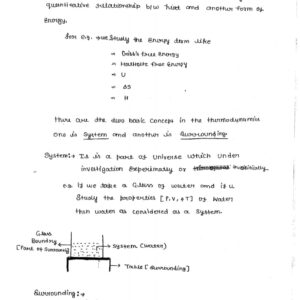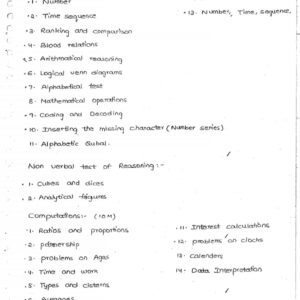Importance of Process Dynamic Control in GATE Examination
Process Dynamic Control is a vital subject for candidates pursuing the Graduate Aptitude Test in Engineering (GATE), as it holds considerable weightage in various engineering disciplines, including chemical, mechanical, and industrial engineering. Mastering this subject provides a solid foundation in understanding system behavior, which is essential for effective engineering practices. As GATE evaluates a candidate’s comprehensive engineering knowledge, familiarity with Process Dynamic Control significantly impacts overall scoring potential.
The syllabus of GATE comprises multiple topics, with Process Dynamic Control featured prominently. Topics typically explored include dynamic modeling of physical systems, control system stability, and various types of control strategies. By grasping these concepts, candidates can solve complex engineering problems encountered in real-world applications. The importance of this subject is underscored by its relevance in both theoretical and practical scenarios, highlighting the necessity for students to develop a thorough understanding.
<pmoreover, (mcqs)=”” (nat).=”” also=”” analyze=”” and=”” answer=”” anticipate=”” application=”” appropriate=”” assess=”” behavior,=”” but=”” calculate=”” can=”” candidates=”” concepts=”” control=”” engineering=”” examination=”” for=”” format=”” formats=”” from=”” includes=”” interpret=”” knowledge=”” metrics.=”” multiple-choice=”” not=”” numerical=”” of=”” often=”” only=”” p=”” performance=”” practices.<=”” question=”” questions=”” ranging=”” require=”” responses,=”” such=”” system=”” that=”” the=”” them=”” theoretical=”” to=”” type=”” types,=”” various=””>
Given the competitive nature of the GATE examination, mastery of Process Dynamic Control can provide candidates with a potentially decisive edge. Scoring well on this subject can enhance overall performance, thereby increasing the chances of securing admission to prestigious postgraduate programs or coveted positions in public sector undertakings. As such, diligent preparation in this area is not only advantageous but critical for aspirants aiming for success in the GATE examination.
Key Topics and Study Strategies for Process Dynamic Control
Process Dynamic Control encompasses various fundamental aspects essential for a comprehensive understanding of control systems. To begin with, system modeling is critical, as it establishes the basis for analyzing and designing control mechanisms. Candidates should familiarize themselves with mathematical representations of dynamic systems, including transfer functions and state-space models. This understanding enables the analysis of how these systems react over time to various inputs.
Next, time response analysis plays a vital role in Process Dynamic Control. This involves evaluating the temporal behavior of control systems, specifically how they respond to changes and disturbances over time. Mastery of concepts such as transient response, steady-state response, and time constants is essential for success in this area. Furthermore, stability is another core topic that candidates should prioritize. Understanding stability criteria and how they apply to various systems will enhance a candidate’s ability to assess and design stable control systems.
Another integral aspect is control systems design, where students learn to develop effective controllers to achieve desired outcomes. Techniques such as PID (Proportional-Integral-Derivative) control should be examined closely, as they are widely used in practice. Lastly, feedback mechanisms should not be overlooked. Grasping the principles of feedback will allow students to appreciate how systems self-regulate and enhance performance through correctional actions.
To facilitate effective study strategies for the GATE examination, candidates ought to identify critical areas within the syllabus and prioritize them in their study plans. Practical applications of theories can significantly enhance understanding; therefore, engaging with real-world examples is advantageous. Utilizing previous GATE papers as practice is also an effective strategy to familiarize oneself with the examination format and question types. Time management during study sessions and the exam is crucial. Allocating specific blocks of time to different topics while regularly assessing progress through mock tests will optimize preparation.
Lastly, leveraging recommended resources, including established textbooks, reputable online courses, and specialized coaching centers, can further support candidates’ learning. By integrating these strategies and resources, aspirants can cultivate a robust foundation in Process Dynamic Control, positioning themselves for success in the GATE examination.
</pmoreover,>





